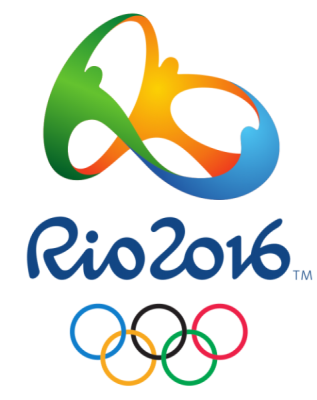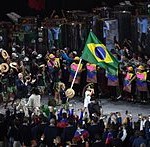 I never heard of Sam Polk till recently. And I’d forgotten Ryan Lochte after the 2012 London Olympics, remembering him only when the Rio games began.
I never heard of Sam Polk till recently. And I’d forgotten Ryan Lochte after the 2012 London Olympics, remembering him only when the Rio games began.
Sam Polk is not an athlete, and he’s not in Rio. In fact, he’s a fellow who gave up chasing gold and trying to win at the tender age of thirty. Polk was a Wall Street wunderkind, he’d made millions then.
In an interview with Paul Solman on PBS News Hour, Polk talked about having gotten all the things he had dreamed would be his perfect life – huge amounts of money in the bank, the thrill of repeated successes, access to elegant restaurants, designer clothes and available poolside beauties. But he felt, he said, empty.
His initial thrill at earning a bonus of $40,000 had turned to anger, when he felt insulted by a bonus of 3.6 million. He’d already reined in his addictions to cocaine and alcohol, and his counselor was suggesting wealth was another addiction. And he’d realized that the wealthier traders around him never felt they had enough money.
So he left Wall Street, feeling empty and afraid. And he entered a world of nobodies and nothing. He put his genius for figuring out situations to work in the vast area of LA where the average annual income is $13,000, and where rates of diabetes, heart disease, obesity – and hunger – are overwhelming. This area is also known as a fresh food desert. No supermarkets, no produce stands, no food stores except 7-11s and their ilk for miles and miles.
Polk spent three years researching all this and writing a book, For the Love of Money. Then, in 2013 used his own money to begin Groceryships, an educational scholarship program, providing families the money to buy fruits, vegetables, grains, beans and seeds for six months, in conjunction with a comprehensive program of education, financial, medical and emotional support to empower them to increase their health.
The success of Groceryships, and the need shown for access to convenience foods have prompted Polk to start Every Table, a chain of restaurants he hopes to expand nationwide, in poor and rich areas alike, all serving a menu of fresh, healthy, inexpensive, prepared foods.
All of this has emerged from the changed life of a Wall Street Wolf, who made millions but never felt he had enough, and who has now recovered from the fears that drove him to always want more.
And the Rio Games are playing now, and 32 year old Gold Medal swimmer Ryan Lochte had a drunken night that has gotten him in trouble with Brazilian law. I find myself wondering if the addiction to success and the struggle to enjoy it may be the same in both these men.
Lochte has had the kind of twenties most people of dream of, huge success and public admiration for his multiple silver and gold medals, won at the Olympics and in World swimming meets. But he has swum in the shadow of Michael Phelps, whose medals are more and whose speeds are faster.
No one forgets Phelps in between Olympic Games. And Phelps name will now be legend, never to be forgotten in Olympic history. But who remembers the silver medalists? The longing to have achieved more, to have beaten Phelps once, must be written deep in Lochte.
His swimming over, Lochte went out for a night on the town with other elite swimmers, to the posh Café France. They left drunk, if not high, and stopped at a gas station to pee, and next, according to the video tape, the drunk Americans vandalized the lavatory. A security guard wielding a gun made them pay for the damages. But according to Lochte, who wrote about it on Facebook, he was a victim there.
At the end of his swimming career, then, Lochte feels as empty as Polk did.
Both men hold up to us this truth: that glittering prizes, which all of us long for, do not fill our need to be loved and valued, do not complete our search for ourselves. The happiness they bring us, fades soon.
Glittering prizes, then, do not make us winners. In fact, in winning we may lose. And in losing, we may indeed win. Something to think about, in the waning days of Rio2016.
___________________________________________________
Image: Rio 2016 logo. en.wikipedia.org










